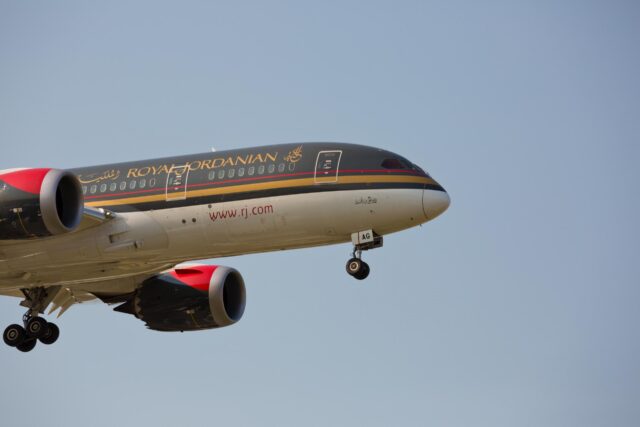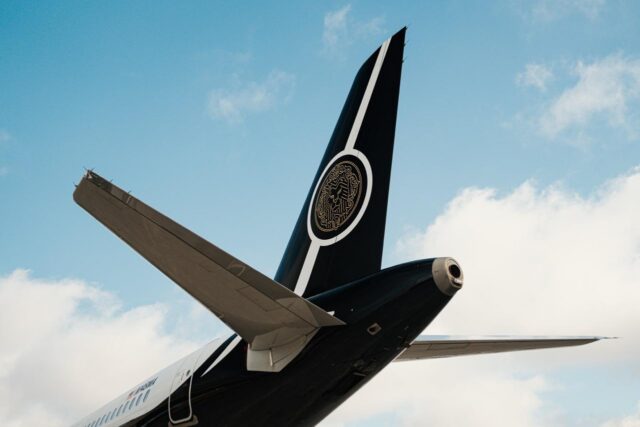Wizz Air abandons Abu Dhabi after 5 years amid geopolitical instability

July 14, 2025

Wizz Air has announced it will cease its Abu Dhabi operations and exit its joint venture in the United Arab Emirates.
The airline cites persistent geopolitical instability and operational challenges in the Middle East as reasons behind the closure.
Wizz Air Abu Dhabi to close
The Hungarian ultra-low-cost carrier opened its Wizz Air Abu Dhabi subsidiary in 2020, with first flights in November that year.
Now, it will cease all flights and dissolve the subsidiary from 1 September 2025.
The strategic retreat from its ambitious Gulf expansion will allow it to refocus on its core Central and Eastern European markets.

The decision, detailed in an official statement released on X, follows a comprehensive reassessment of market conditions, regulatory hurdles, and the volatile geopolitical environment that has disrupted air travel in the region.
Wizz Air described this strategic realignment as a move to reinforce its strengths in Central and Eastern Europe, as well as selected Western European countries like Austria, Italy, and the UK.
Why did Wizz Air Abu Dhabi have to close?
Wizz Air Abu Dhabi was launched as a joint venture with ADQ, the UAE sovereign wealth fund. The operation was envisioned as a gateway connecting underserved routes across South Asia, the Middle East, and parts of Africa.
However, the region’s ongoing conflicts and repeated airspace closures frequently disrupted flight schedules and increased operational costs.
The airline also faced regulatory barriers limiting its ability to scale and capture market share in key destinations.
Engine reliability issues, exacerbated by the region’s hot and harsh climate, affected aircraft availability and operational efficiency. Wizz noted that engine wear occurred up to three times faster than in other environments, leading to maintenance costs and downtime.

József Váradi, Wizz Air’s CEO, acknowledges the significant challenges faced in the Middle East, thanking employees for their dedication but emphasising the necessity of the strategic focus.
“While this was a difficult decision, it is the right one given the circumstances,” Váradi says. “We continue to focus on our core markets and on initiatives that enhance Wizz Air’s customer proposition and build shareholder value.”
Was Wizz Air scuppered from the start by its choice of airport?
No doubt, Wizz Air has been hampered by conditions outside of its control. But the traffic potential at Zayed Airport is already limited, with passengers typically preferring the neighbouring Dubai.
Last year, more than 92 million passengers traveled through Dubai, compared with just 28.8 million at Zayed.

The competition out of Zayed was fierce too, particularly in the low cost segment. Air Arabia Abu Dhabi operates a solid network out of AUH into much of the Middle East, while low-cost giant IndiGo has carved out most of the routes to the Indian subcontinent.
That’s not to say there was a better airport for Wizz Air in the Gulf, but the European carrier has found out the hard way that not everywhere is straightforward to operate in.
Will passengers of Wizz Air Abu Dhabi get a refund?
Passengers holding bookings beyond 31 August 2025 will be contacted with options for refunds or alternative travel arrangements.
Bookings made via third-party agents will require passengers to coordinate with their respective providers.
The suspension of Abu Dhabi operations will not affect Wizz Air’s other flights globally.
Wizz Air: A strong point-to-point carrier with a young fleet
Wizz Air operates one of Europe’s youngest and most efficient fleets, consisting exclusively of Airbus aircraft.
Its current fleet of 229 airplanes includes the Airbus A320-200 and the more fuel-efficient A320neo models, along with the larger A321-200 and the next-generation A321neo jets.
Notably, Wizz Air recently incorporated the A321XLR, a long-range narrowbody aircraft that entered service with the airline in May 2025.
This fleet strategy allows Wizz to optimise costs through common pilot training, maintenance, and parts inventory while expanding its route network.

Wizz Air’s exit from Abu Dhabi is a setback for the UAE capital’s vision to develop a diversified aviation ecosystem.
While Emirates and Etihad focus on premium, full-service long-haul travel, Wizz Air Abu Dhabi was intended to stimulate growth in the budget travel segment, offering affordable options to regional and international travellers.
The vacuum left by Wizz Air’s departure may present an opportunity for other low-cost carriers such as Turkey’s Pegasus Airlines or India’s IndiGo. However, analysts caution that the same geopolitical volatility that challenged Wizz will continue to pose risks.
Wizz Air’s Abu Dhabi exit: A retreat or a recalibration?
Industry observers view the move as a recalibration rather than a retreat. The airline’s management plans to redeploy aircraft and crew to bolster services in core markets such as Poland, Hungary, Romania, and the Balkans, where demand remains robust.
This shift aligns with Wizz Air’s broader strategy of disciplined capital allocation and sustainable growth.
Although the transition may impose restructuring costs that impact near-term earnings, investors are expected to respond positively to the renewed focus on profitability and operational stability.
As geopolitical risks persist in the Middle East with no clear timeline for resolution, Wizz Air’s strategic realignment could serve as a model for other carriers weighing expansion against regional instability.
For now, Wizz Air is putting its resources into markets where it can deliver consistent value, leveraging a modern, standardised Airbus fleet to meet growing European demand for affordable air travel.
















